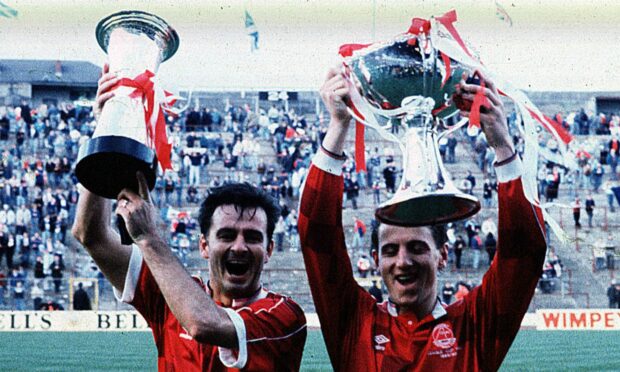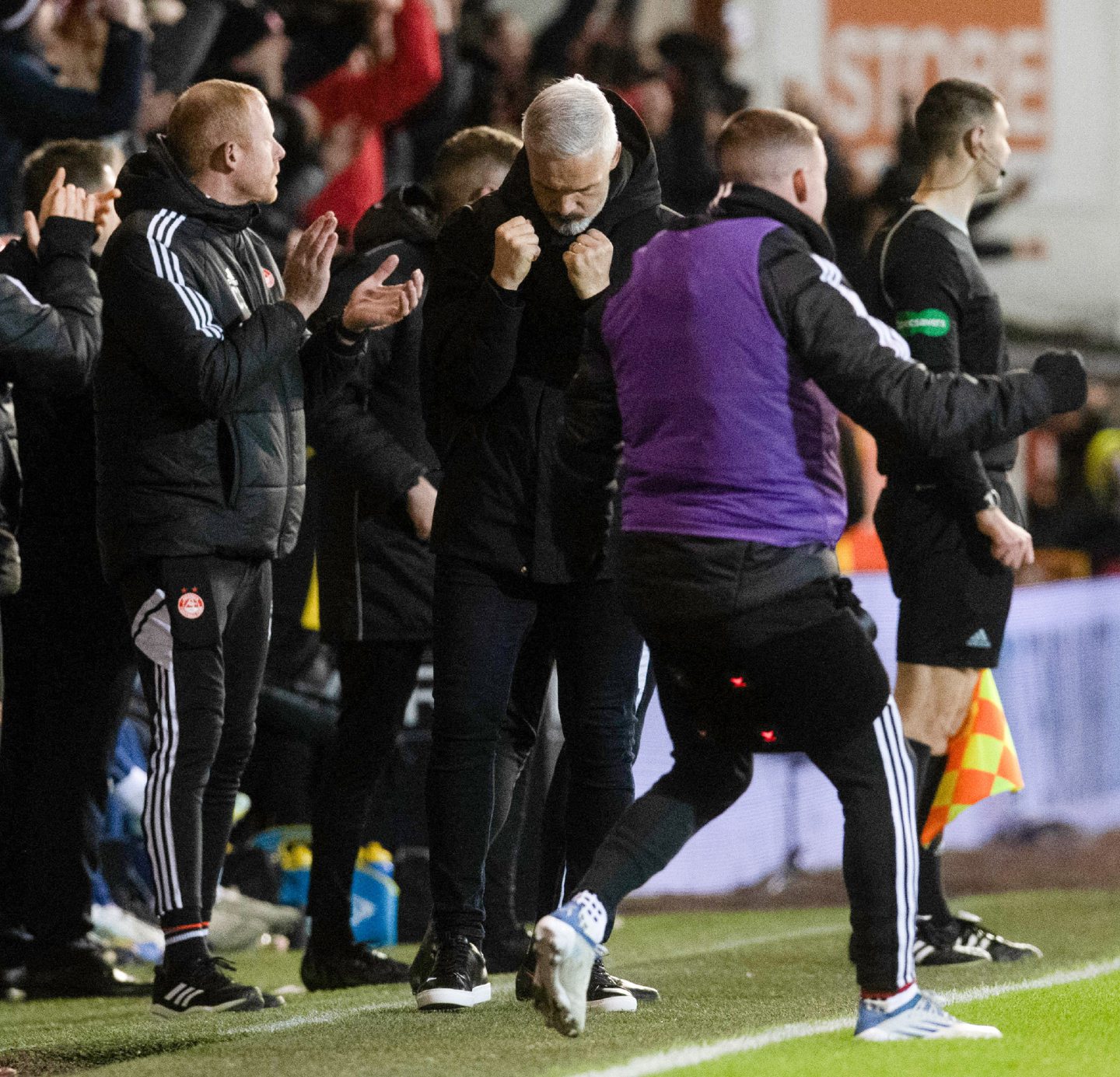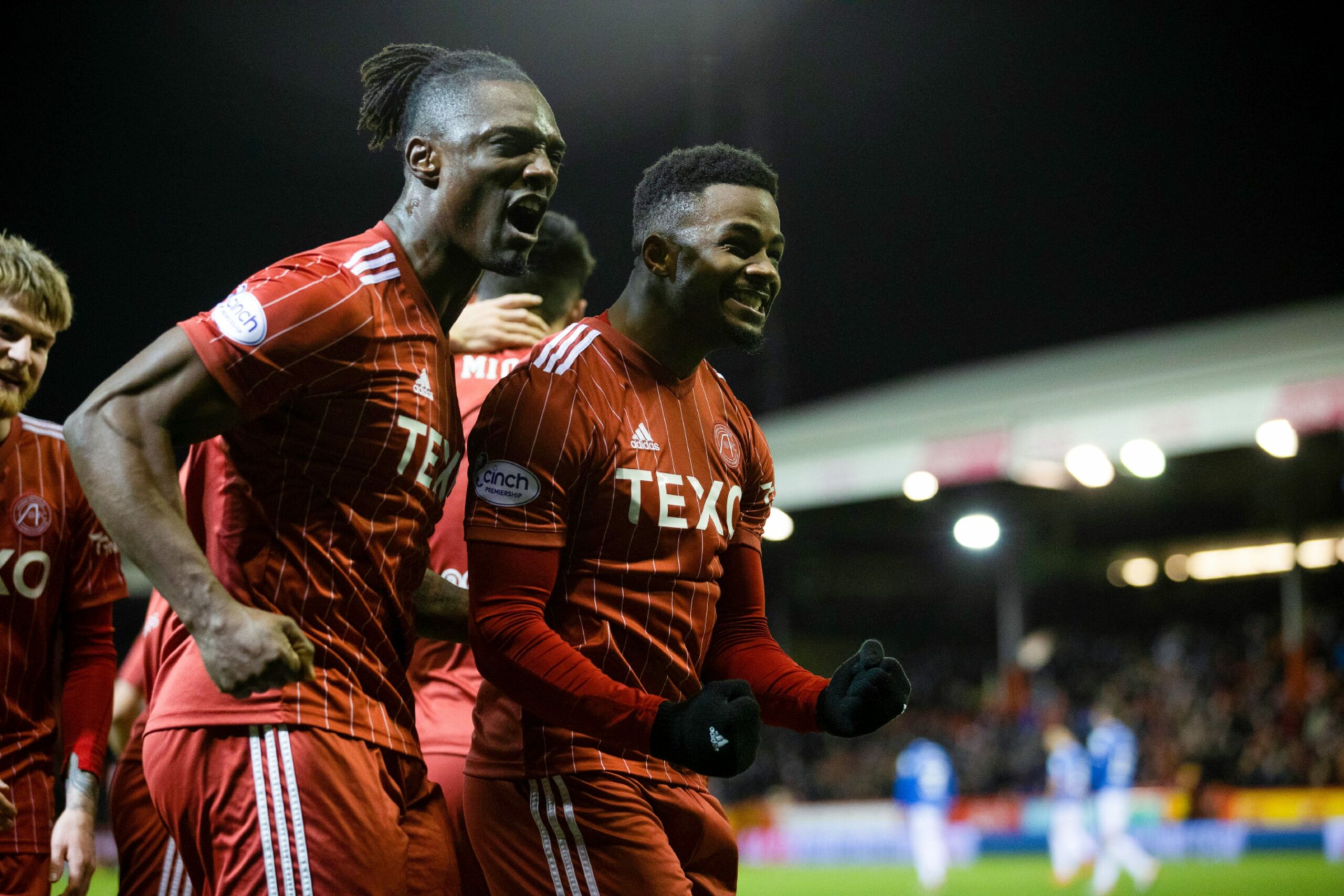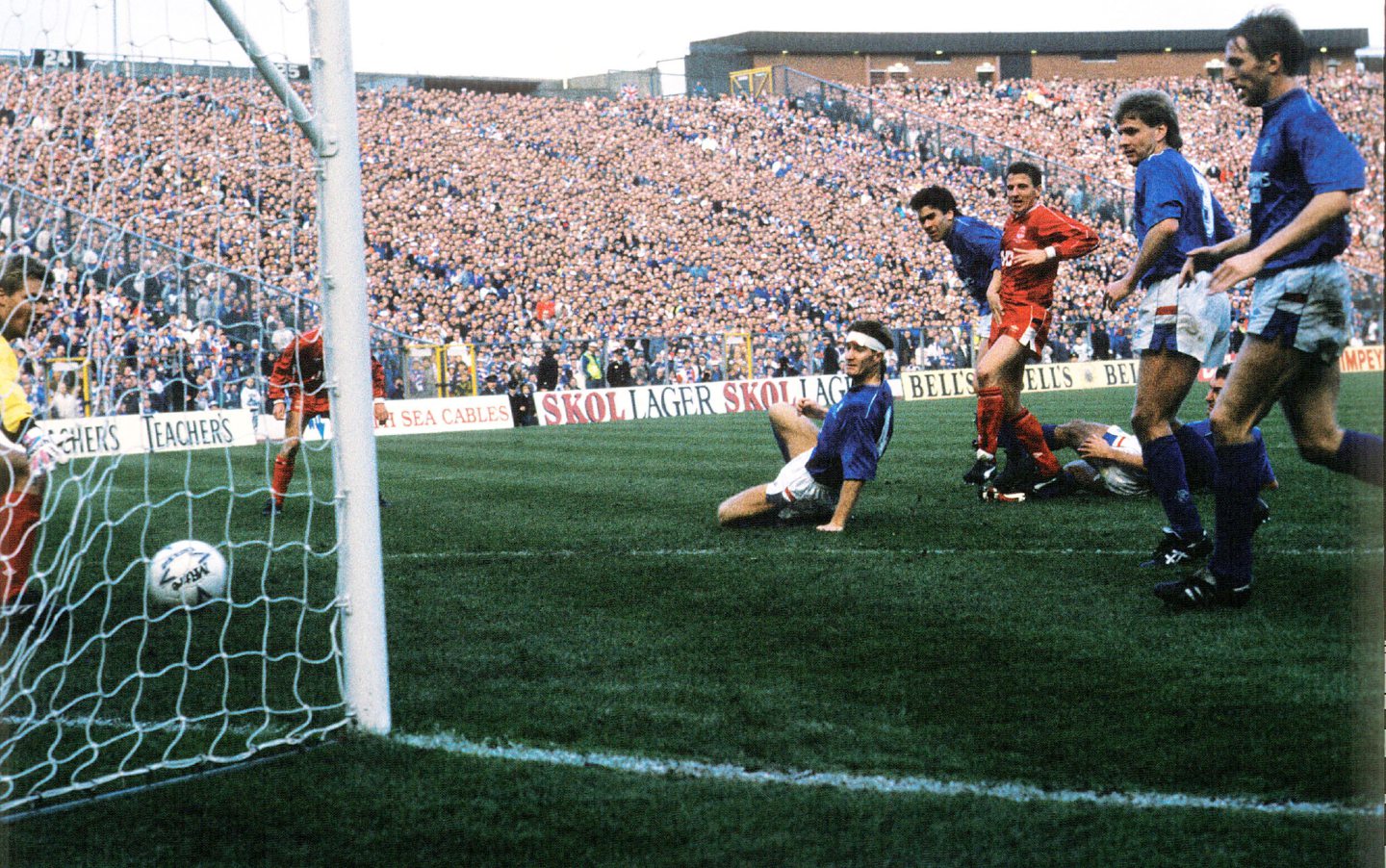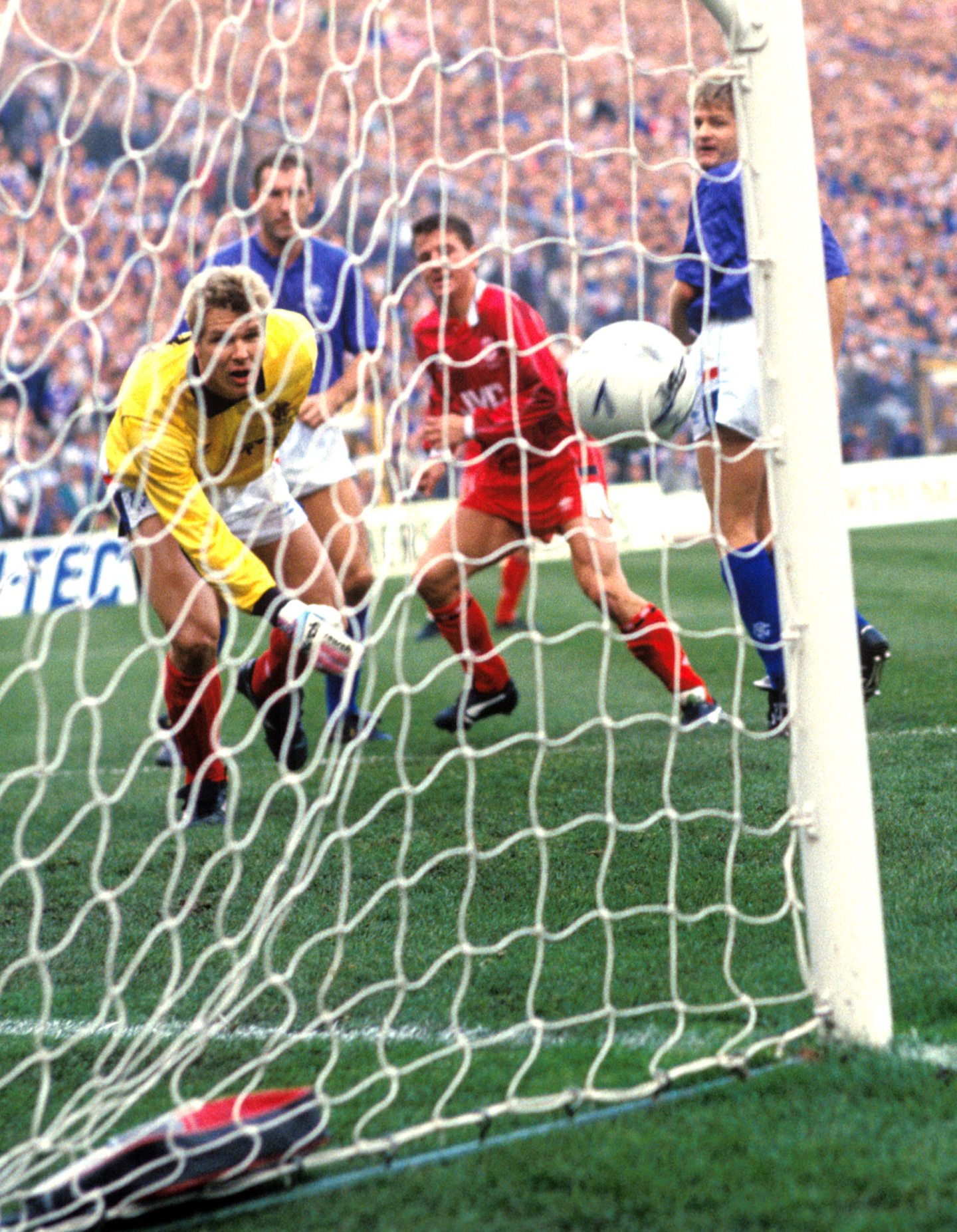League Cup final goal hero Paul Mason believes Aberdeen boss Jim Goodwin should build a siege mentality for the Hampden showdown with Rangers.
The Dons face-off with the Ibrox club in the League Cup semi-final at the national stadium on Sunday.
Former Dons midfielder Mason knows what it takes to beat Rangers at Hampden.
The Pittodrie legend netted a memorable double in the 2-1 League Cup final win against Rangers on 22 October 1989.
Mason, 59, revealed the Dons management fired up the team by saying they would not only be playing Rangers at Hampden.
They would also be up against the crowd… and the referee.
Mason says that “wound us up” and got the Reds ready to take on Rangers in Glasgow.
He reckons Goodwin should instill the same siege mentality on Sunday.
Aberdeen face the Ibrox club just three weeks after Goodwin’s side blew a 2-1 lead in injury time to lose 3-2.
And Mason reckons the same mentality could help book a cup final slot.
He said: “Every time we went to Glasgow to play Rangers the management of Alex Smith and Jocky Scott said we are not only playing the team.
“We are playing against the crowd and the referee as well.
“That wound us up.
“If Jim Goodwin is saying similar things to the players, the more they will get wound up.
“The more they will think their backs are against the walls and that gives you a real chance.
“It’s almost like a siege mentality when you go to Glasgow.”
‘Everything you dream about as a kid’
Signed from Dutch side FC Groningen for £200,000 in 1988, Mason was a two-goal cup hero the following year.
He met a Bobby Connor cross to put Aberdeen 1-0 up in the 22nd minute.
Mark Walters levelled for Rangers from the penalty spot later in the first half.
In extra-time, the 102nd minute, Mason latched onto a Charlie Nicholas lay-off to fire the Dons to the trophy with a low 15-yard drive.
He said: “It was the biggest achievement of my career, the highlight.
“To score two goals in a cup final is everything you dream about as a kid.
“The first goal meant the most to me, even though the second was the winner.
“It was the moment all my childhood dreams came true, to score in a final.
“For that 10 to 15 seconds after the ball went in the net you run away in elation and are on a different planet.
“You don’t know if it’s real.
“It was unbelievable.
“My family had travelled up from Liverpool for the final.
“My mum and dad were there with my sister.
“I remember looking up to the stands and seeing them in the crowd which was quite emotional.
“You want it to last forever.
“I was on a high for three days and didn’t come back down to earth, and when I did I realised what I had done.
“For those three days I was on cloud nine.”
From factory floor to cup goal hero
The League Cup final goals, and trophy, represented not just the realisation of a childhood dream for Mason.
It was vindication that he had worked his way to the big time after early career setbacks.
Mason feared his professional football career was over as he grafted in factories and building sites in the Netherlands.
Released by Everton and unable to secure a deal elsewhere he moved overseas in search of work.
Mason worked long shifts in the Netherlands – one job was in a cigarette factory, another in the freezer of a ship loading boxes.
Five years later he was lifting the League Cup at Hampden as the two-goal hero.
While working in the Netherlands Mason began playing for local amateur teams.
A scout with top-flight side Groningen noticed the midfielder.
‘I thought my career was over’
He was eventually offered a part-time contract for a year in the reserves but impressed enough to earn a permanent deal.
Aberdeen boss Smith swooped to sign him in July 1988.
Mason went on to make 193 appearances for the Dons, scoring 37 times before transferring to Ipswich Town in 1993.
Mason said: “I had been rejected by one or two clubs and for me those goals in the final were proof I had made it to the big time.
“When I went to Holland I wasn’t going to play football, it was to find work.
“Then five years later I was scoring twice in a cup final.
“I thought my professional career was over when I went to Holland.
“I had been rejected as Everton let me go as I was too small.
“Then Tranmere wouldn’t give me a contract as there wasn’t much money going around at the time.
“I had the skill as a kid but the attitude and work-rate wasn’t there when I was 16.
“When I left home at 19 to see my brother in Holland I did a bit of growing up.
“When I got that chance in football again I buckled down and worked hard.
“I had realised it was a big, bad world out there.
“I had matured as a person and luckily enough I got a chance at football again. And it came good.”
